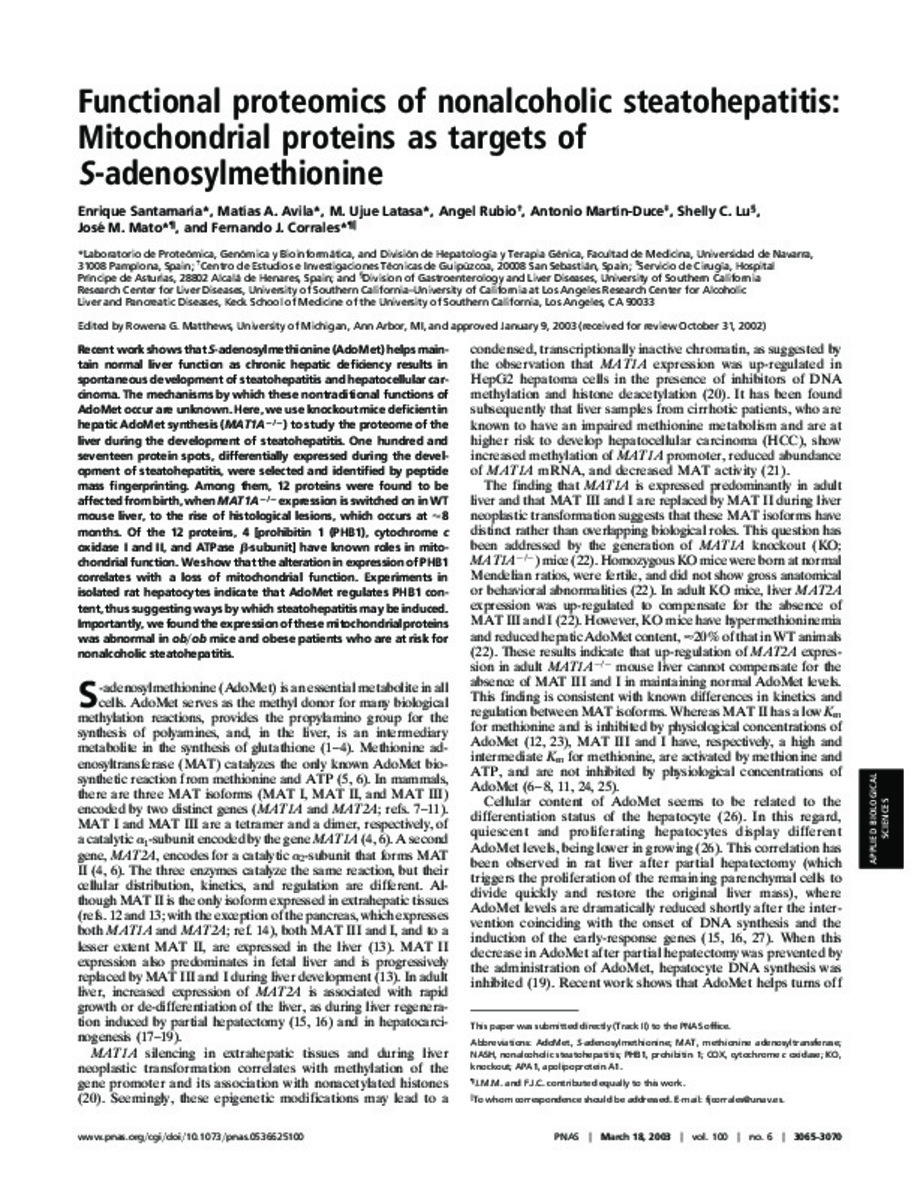Functional proteomics of nonalcoholic steatohepatitis: mitochondrial proteins as targets of S-adenosylmethionine
Palabras clave :
Hepatitis/genetics
Hepatitis/metabolism
Mitochondrial Proteins/genetics
Mitochondrial Proteins/metabolism
Repressor Proteins
S-Adenosylmethionine/metabolism
Fecha de publicación :
2003
Editorial :
National Academy of Sciences
Cita:
Santamaria E, Avila MA, Latasa MU, Rubio A, Martin-Duce A, Lu SC, et al. Functional proteomics of nonalcoholic steatohepatitis: mitochondrial proteins as targets of S-adenosylmethionine. Proc Natl Acad Sci U S A 2003 Mar 18;100(6):3065-3070.
Aparece en las colecciones:
Estadísticas e impacto
0 citas en

0 citas en

Los ítems de Dadun están protegidos por copyright, con todos los derechos reservados, a menos que se indique lo contrario.







